By: Yasmi Adriansyah*
The latest situation in Gaza has not given any signs of betterment. Bad and worse news bombard the world, reflecting the brutal bombardments of Israel into the tiny strip.
The United Nations as the most prominent international institution has attempted to do something impactful, either through its powerful body the Security Council or the General Assembly. Yet Israel negates the attempts and keeps challenging the forthcoming and the already-made decisions. It even fights back harshly.
As an example, Israel through its ambassador to the UN, Gilad Erdan, has called the UN Secretary-General Antonio Guterres to “resign immediately”. The call was further emphasized by Israel’s Foreign Affairs Minister Eli Cohen, demanding that if all nations do not stand decisively by their country’s mission, it will be the “darkest hour of the UN” and the organization will “have no moral justification to exist”.
Also Read: The Two-State Solution (Palestine–Israel) in Historical Perspective
More aggressively, Israel goes further in implementing the call. It vowed to refuse the future visa application of any UN representatives. Previously the Zionist state had refused a visa to Under-Secretary General for Humanitarian Affairs, Martin Griffiths, a prominent UN’s name.
The main impetus of Israel’s fury was Guterres’ statements at the Security Council. Guterres stated that, among others, nothing could justify the deliberate killing and kidnapping of civilians, or the Hamas rocket launches against civilian targets. Yet, he added, it is important to recognize the attacks by Hamas “did not happen in a vacuum”.
The anger of Israel toward the UN Secretary-General and the world’s most prominent international organization is fully illogical, if not ridiculous. It has been commonly known that there are tens of UN resolutions calling Israel the occupying power. The phrase “occupied Palestinian territories” has almost become a mantra in many resolutions, particularly those being agreed upon at the General Assembly (GA).
The statements of the Secretary-General were actually very balanced as he criticized both Hamas and Israel. It is also obvious that the criticism toward Hamas was made direct, whereas to Israel was indirect. This in fact should be regarded as more favoritism toward the Israeli side.
Also Read: Enchanted by K-Dramas, Dragged into Slander: Time for Muslims to Rise!
Further, Guterres highlighted the importance of upholding international laws, more particularly international humanitarian law. By common norms, any civilized nation shall adhere to such laws to solve transnational problems. If one or few countries stick narrowly to their national interests, the world shall just wait for further destruction of international order. The prolonged occupation of the Palestinian territories is already its cogent example.
Israel should bear in mind that the utmost importance of Guterre’s statements is on the notion that protecting civilians should be the highest priority of the international community.
As widely reported, due to Israeli genocidal attacks, thousands of Palestinians in Gaza have thus far been killed. Almost half of them are children. UNICEF stated that more than 400 children in the Gaza Strip are injured or killed every day. It labels the situation a “growing stain on our collective conscience”.
Guterres’ statement saying that the attacks by Hamas “did not happen in a vacuum” is indeed very logical. Hamas or any groups fighting against Israel are generally demanding their independence from the decades-long occupation of the Palestinian territory.
Also Read: Creating Opportunity and Avoiding Misery; Lesson Learn on Waste Recycling Issue
For some, Hamas and the fighting groups are terrorists. Yet for the supporters of Palestinian independence, Hamas and the groups are merely freedom fighters. Any country who experienced colonization understands this semantic game.
In fact, the standpoints of Guterres or the UN Secretariat could not do much to change the situation. The UN and especially its power body the Security Council has been well known for its utmost inability in solving the Palestinian cause.
Yet it must be understood that the UN, like any international organization, is driven by its members. The backing of its members toward Israel, more particularly by the United States with its veto power, is the main failure reason in the Security Council.
Given this unfortunate situation, one may ask what other avenues could stop the genocide occurring in the occupied Palestinian territories.
Also Read: Between the Treaty of Hudaybiyyah and Ceasefire in Gaza
In that context, UNGA could still be the potential hope. Despite its resolutions being non-binding in nature, at the very least they can put moral pressure on Israel and its backers.
The recent resolution by the UNGA titled “Protection of civilians and upholding legal and humanitarian obligations” certainly deserves appreciation. At least, it shows the Palestinians that the civilized world is still supporting and caring for them.
The challenge in implementing the resolution is, however, how to carry out the urgently needed task. Israel certainly stands not to bow to the resolution. Even the call by its patron (the US) to do a humanitarian pause, much less than a ceasefire, was not adhered to.
In other words, if the caring international society wants to see a change, Israel must be forced by forces. The most tangible one is through the deployment of a peacekeeping force.
Also Read: Peace Cannot Be Achieved Without a Palestinian State
The conundrum is that the UN peacekeeping forces are generally mandated by the Security Council. Any attempts to propose a resolution for establishing such a force in the occupied Palestinian territories will again be vetoed by the US. Everyone knows that the US is a die-hard backer of Israel.
In that regard, there is still hope with the UNGA as this body produced such resolutions in the past. The notable one was the creation of a peacekeeping force by the UNGA namely the UN Emergency Force that dealt with the armed conflicts between Egypt against Israel, France, and the UK in 1956.
The deployment of such a peacekeeping force should however require the consent of conflicting parties. Therefore, Israel most likely will not accept such a proposal. Yet there are precedents that the consent of all parties could still be excluded.
Israel, as an example, did not give its consent to the UNEF-1. Other similar examples were the UN peacekeeping forces in Mali (MINUSMA) and the Democratic Republic of Congo (MONUSCO).
Also Read: Facing the Wall: Netanyahu and Ambitions Built on Blood
The next question is what the peacekeeping force should do to protect the civilians in Gaza from further genocide. The common practices of the UN could be the guiding answers.
First, it must prevent the further outbreak of war or the spillover of conflict across borders. Meaning, that force shall prevent further attacks both from Hamas and from Israelis more particularly. Put simply, it must impose a ceasefire.
Second, it must stabilize the conflict situations after a ceasefire. A ceasefire is usually still fragile as the exchanges of armed attacks could reoccur at any time. Thus, the force shall stay on the ground to ensure that the temporary peace can be made more durable.
Third, it must create an environment for both sides to reach a lasting peace agreement. In this regard, the most urgent one is between Hamas as the representative of the Gazan people and Israel. At a later stage, it should be between Israel and the Palestinian National Authority in the West Bank.
Also Read: Taaruf of the Construction World: Lessons from the Collapse of Al Khoziny’s Prayer Hall
Finally yet importantly, when the peace agreements have been made, the ultimate expectation for the two-state solution could be reached.
Will both sides particularly Israel accept such optimistic scenarios? If it considers itself a civilized nation, then it must. Negating the UN’s existence will only emphasize its barbarism in the international arena.(AK/R1/P2)
Mi’raj News Agency (MINA)
Also Read: Fear of Being Left Behind: When FOMO Becomes a Lifestyle for Gen Z
*Yasmi Adriansyah, PhD is the head of the multilateral division, Department of International Relations and Cooperation of Muhammadiyah, the world’s largest modern Muslim organization based in Indonesia
Also Read: Peace in Gaza, Between Hope and Reality






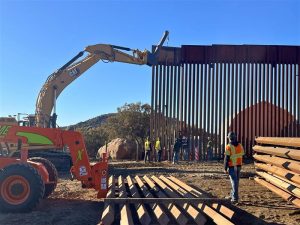



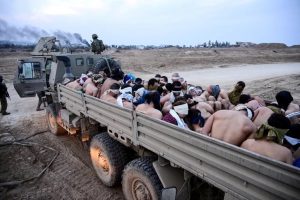




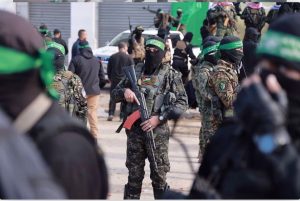




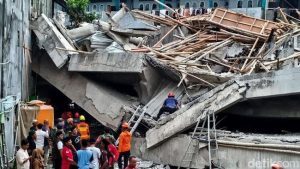

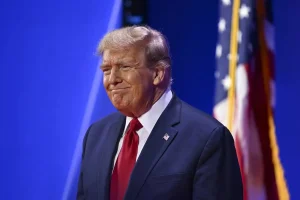
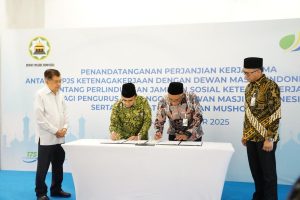
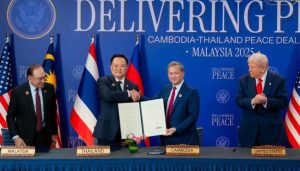
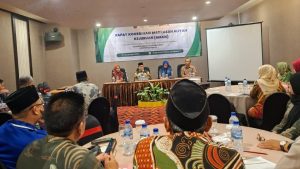





 Mina Indonesia
Mina Indonesia Mina Arabic
Mina Arabic